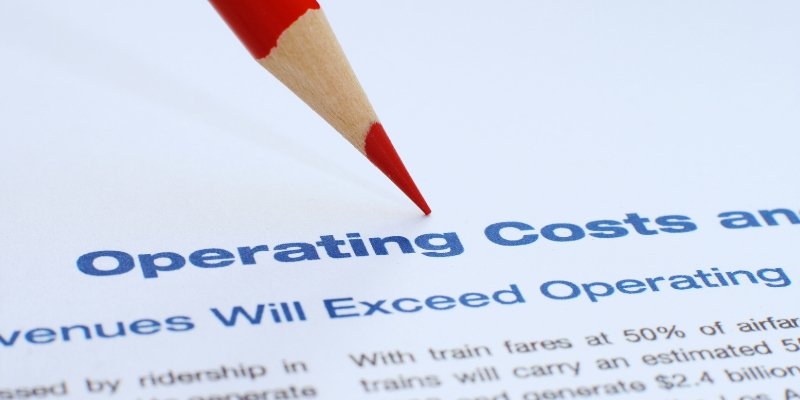Establishing a Courier Business in Singapore: A Guide for Aspiring Entrepreneurs

In an increasingly fast-paced world, the demand for efficient and reliable delivery services is on the rise. Singapore, with its strategic location and developed infrastructure, presents a prime opportunity for aspiring entrepreneurs to establish a courier business. This guide will explore the reasons to start a courier business, provide detailed steps for establishment, discuss challenges to consider, and outline important financial planning aspects essential for success.
Reasons to Start a Courier Business

Growing E-commerce Market: The e-commerce sector in Singapore has seen significant growth, leading to an increased demand for courier services. As more businesses move online, the need for reliable delivery solutions becomes paramount, creating ample opportunities for new entrants in the courier business.
Diverse Customer Base: A courier business can cater to a wide range of clients, including individuals, small businesses, and large corporations. Whether it’s delivering documents, packages, or urgent freight, the versatility of services you can offer allows you to tap into various market segments.
Technological Advancements: With advancements in technology, starting a courier business has become more accessible. From route optimization software to mobile applications for tracking deliveries, technology can enhance operational efficiency and improve customer satisfaction.
Flexibility and Scalability: A courier business can be started on a small scale and expanded over time. Entrepreneurs can begin with a few vehicles and gradually increase their fleet as demand grows, allowing for flexibility in operations and investment.
Detailed Steps to Establish a Courier Business

Conduct Market Research: Begin your journey by conducting thorough market research. Understand the local demand for courier services, identify your target audience, and analyze competitors. This information will help you position your courier business effectively.
Develop a Business Plan: A well-structured business plan is crucial for guiding your courier business. Outline your business model, service offerings, pricing strategy, marketing approach, and financial projections. A solid plan will also be valuable for securing funding if needed.
Choose a Suitable Business Structure: Decide on a business structure that aligns with your goals, such as a sole proprietorship, partnership, or private limited company. Each structure has its own legal implications and tax considerations, so choose wisely based on your long-term vision.
Register Your Business: Register your courier business with the Accounting and Corporate Regulatory Authority (ACRA). Ensure compliance with all legal requirements, including obtaining any necessary licenses or permits specific to the courier industry.
Acquire Necessary Equipment and Vehicles: Invest in the necessary equipment and vehicles for your courier business. Depending on the services you offer, this may include delivery vans, motorcycles, or bicycles. Ensure that your vehicles are reliable and equipped with tracking technology.
Build a Strong Brand: Establish a professional brand identity that resonates with your target audience. This includes creating a memorable logo, a user-friendly website, and marketing materials that reflect your courier business’s values and services.
Implement Technology Solutions: Leverage technology to streamline your operations. Consider implementing a logistics management system for tracking deliveries, managing routes, and optimizing efficiency. Mobile apps can also enhance customer experience by providing real-time updates.
Market Your Services: Develop a marketing strategy to promote your courier business. Utilize digital marketing, social media, and local advertising to reach potential clients. Offering promotions or discounts for first-time customers can help attract initial business.
Challenges and Considerations for Both Local and Foreign Entrepreneurs

Intense Competition: The courier industry is highly competitive, with many established players. Differentiating your services through exceptional customer service, reliability, and unique offerings is crucial for standing out in the market.
Regulatory Compliance: Entrepreneurs must navigate various regulations governing the courier industry. Familiarize yourself with licensing requirements, insurance obligations, and safety standards to ensure compliance and avoid legal issues.
Managing Operational Costs: Operating a courier business involves various costs, including fuel, maintenance, salaries, and insurance. Careful financial management is essential to maintain profitability while delivering quality services.
Customer Expectations: Customers expect timely and reliable deliveries. Meeting these expectations consistently can be challenging, particularly during peak seasons. Implementing effective logistics and customer service strategies is vital for maintaining satisfaction.
Financial Planning Aspects

Startup Costs: Estimate the initial investment required to launch your courier business. This includes costs for registration, equipment, vehicles, technology, and marketing. Understanding startup costs will help you secure funding and manage cash flow effectively.
Pricing Strategy: Develop a competitive pricing strategy for your courier services. Consider factors such as market demand, competitor pricing, and the value you provide to clients. Regularly review your pricing based on feedback and market changes.
Revenue Streams: Explore multiple revenue streams to enhance profitability. In addition to standard delivery services, consider offering specialized services such as same-day delivery, international shipping, or logistics consulting to diversify your income.
Financial Projections: Create financial projections for the first few years of your business, estimating revenue, expenses, and profits. This will help you plan for growth and make informed decisions about your business operations.
Conclusion
Establishing a courier business in Singapore presents an exciting opportunity for aspiring entrepreneurs. By conducting thorough research, developing a solid business plan, and navigating the challenges of the industry, you can create a successful venture that meets the growing demand for reliable delivery services.
If you are ready to take the next step in your entrepreneurial journey, contact Company Formation Specialist today. Our expert team is here to guide you through the process of establishing your courier business in Singapore, ensuring you have the support and resources needed to succeed.
Frequently Asked Questions
1. What are the reasons to start a courier business in Singapore?
Answer: Singapore’s growing e-commerce market, diverse customer base, technological advancements, and scalability make it an ideal location to start a courier business. The demand for reliable delivery services continues to rise, presenting ample opportunities for entrepreneurs.
2. What are the first steps to starting a courier business in Singapore?
Answer: Begin by conducting market research, developing a business plan, selecting a suitable business structure, and registering your business with ACRA. Next, acquire necessary vehicles and equipment, build your brand, and implement technology solutions to streamline operations.
3. What types of vehicles are needed for a courier business?
Answer: Depending on the services you plan to offer, you may need delivery vans, motorcycles, or bicycles. Ensure your vehicles are reliable, efficient, and equipped with tracking technology for smooth operations.
4. How competitive is the courier industry in Singapore?
Answer: The courier industry in Singapore is highly competitive, with many established players. To stand out, you’ll need to focus on exceptional customer service, reliable delivery, and unique offerings to differentiate your business.
5. What are some common challenges when starting a courier business?
Answer: Challenges include managing operational costs, meeting customer expectations, complying with regulatory requirements, and differentiating from competitors. Effective logistics and customer service strategies are crucial to overcome these hurdles.
6. How much capital do I need to start a courier business in Singapore?
Answer: Initial startup costs typically include business registration, purchasing vehicles and equipment, implementing technology solutions, and marketing. A detailed financial plan can help you estimate the required capital and manage cash flow.
7. What is the best business structure for a courier company in Singapore?
Answer: The best business structure depends on your goals. Options include a sole proprietorship, partnership, or private limited company. Each structure has its own legal and tax implications, so consider your long-term business strategy when choosing.
8. How do I market my courier services in Singapore?
Answer: Utilize digital marketing, social media, and local advertising to reach potential clients. Offering promotions or discounts for first-time customers can help attract initial business. A professional brand identity and website are essential to build credibility.
9. What are the regulatory requirements for operating a courier business in Singapore?
Answer: You must comply with regulations regarding licensing, insurance, and safety standards. Register your business with the Accounting and Corporate Regulatory Authority (ACRA) and ensure adherence to local laws to avoid legal issues.
10. How can I ensure the profitability of my courier business?
Answer: Focus on cost management, competitive pricing, and diversifying revenue streams. Consider offering premium services like same-day delivery, international shipping, or logistics consulting. Regularly assess financial projections and adjust operations as needed.

